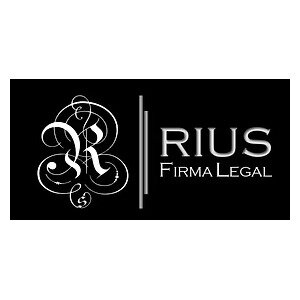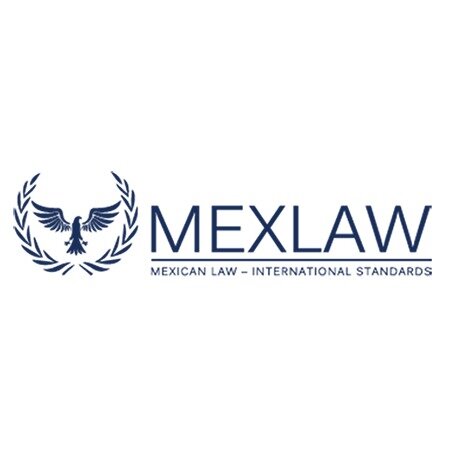Best Conveyancing Lawyers in Mexico
Share your needs with us, get contacted by law firms.
Free. Takes 2 min.
Free Guide to Hiring a Real Estate Lawyer
Or refine your search by selecting a city:
List of the best lawyers in Mexico
About Conveyancing Law in Mexico
Conveyancing in Mexico refers to the legal process of transferring property ownership from one party to another. This involves a series of legal steps, document verifications, and registrations to ensure the proper and legal transfer of title. The process is commonly handled by a notary public, who plays a key role in examining documents, drafting contracts, and ensuring that all parties comply with Mexican law. Understanding conveyancing law is critical for anyone looking to buy, sell, or inherit real estate in Mexico, as the legal frameworks and requirements may differ significantly from those in other countries.
Why You May Need a Lawyer
Conveyancing transactions in Mexico can be complex and entail significant financial and legal implications. You may need a lawyer specializing in conveyancing law for reasons such as:
- Purchasing property as a foreigner, which requires compliance with specific rules and restrictions
- Selling property and ensuring a legally binding, clear transaction
- Verifying the legitimacy of property ownership and ensuring there are no outstanding liens or unpaid property taxes
- Drafting and reviewing contracts to prevent unfavorable terms or hidden liabilities
- Navigating inheritance or gifting of property to heirs
- Addressing disputes related to property boundaries, easements, or co-ownership
- Managing properties located within restricted zones, such as coastal or border areas, which have additional regulatory hoops
Engaging a qualified conveyancing lawyer helps protect your investment, reduces risks, and ensures compliance with Mexican regulations.
Local Laws Overview
Conveyancing in Mexico is governed by a combination of federal laws, state regulations, and local customs. Key aspects of the legal framework include:
- All real estate transactions must be formalized in front of a Mexican notary public, who is a government-appointed attorney with special authority
- Foreigners buying property near restricted zones (50 km from coastlines or 100 km from borders) must do so via a bank trust (fideicomiso) or a Mexican corporation
- Due diligence checks are mandatory and cover ownership, property encumbrances, and land use rights
- Property taxes (predial) and transfer taxes (ISAI) must be settled during conveyancing
- Registration of the new title with the Public Registry of Property is required to finalize ownership transfer
- Contracts and documents must often be drafted in Spanish for official recognition, and all foreign documents require authentication or apostilles
- Each state in Mexico may have additional regulations and procedures, making local expertise important
Frequently Asked Questions
What are the main steps in purchasing property in Mexico?
The basic steps include making an offer, signing a purchase agreement, conducting due diligence, completing payment arrangements, formalizing the deed before a notary public, paying taxes and fees, and registering the new owner with the Public Registry.
Can foreigners own property anywhere in Mexico?
Foreigners can own property directly in most of Mexico, but in restricted zones near coastlines and borders, ownership must be via a bank trust (fideicomiso) or a Mexican corporation.
What is a fideicomiso and do I need one?
A fideicomiso is a bank trust required for foreigners buying property within restricted zones. The bank holds the title for the foreign buyer, who retains full rights to use, lease, sell, or bequeath the property.
Do I need a lawyer or is a notary public enough?
A notary public formalizes and legalizes the transaction, but a lawyer can provide representation, negotiate terms, review documents, and independently protect your interests throughout the process.
What costs are involved in conveyancing in Mexico?
Costs include notary fees, legal fees (if applicable), taxes (such as ISAI and predial), bank trust set-up and annual fees, registration fees, and potential agency commissions.
What documents are required for the transaction?
Required documents typically include valid identification, proof of tax payments, property title, no-lien certificate, and for foreigners, proper immigration status documentation and bank trust paperwork if applicable.
How long does the conveyancing process take?
The process usually takes from four to eight weeks, depending on due diligence, document preparation, and the efficiency of the notary and registry offices.
What if there is an outstanding debt or lien on the property?
Any debts or liens must be settled before ownership can transfer. The notary and lawyer will investigate this during due diligence, and it should be resolved prior to signing the final deed.
Can I purchase property remotely without being in Mexico?
Yes, it is possible through a legal power of attorney granted to a trusted individual or legal representative in Mexico, who acts on your behalf for signing and processing the documents.
What happens if there is a dispute after purchase?
Disputes over title, boundaries, or contractual terms can be addressed through negotiation, mediation, or legal action. Having legal support from the beginning is essential to prevent and resolve such issues.
Additional Resources
Below are recommended resources and authorities related to conveyancing in Mexico:
- The Public Registry of Property (Registro Público de la Propiedad) for property records and title searches
- Notarial Associations (Colegio de Notarios) in each state for lists of notaries and guidelines
- Secretariat of Foreign Affairs (Secretaría de Relaciones Exteriores) for information on property ownership by foreigners
- State and municipal government offices for local property regulations and procedures
- Mexican Bar Associations for referrals to experienced conveyancing lawyers
Next Steps
If you need legal assistance for a conveyancing matter in Mexico, consider taking the following steps:
- Gather all relevant documents related to the property, including title deeds, identification, and any previous agreements
- Identify your specific needs, such as buying, selling, inheritance, or dispute resolution
- Consult a qualified lawyer with expertise in conveyancing law in the relevant state or city
- If you are a foreigner or dealing with restricted zones, inquire about the fideicomiso process or corporate structures
- Engage a respected notary public recommended by your lawyer or local bar association
- Ask for a transparent breakdown of all fees, taxes, and timelines for your specific transaction
- Follow professional legal guidance to execute contracts and complete all registrations for a secure and compliant property transaction
Conveyancing laws in Mexico can be intricate, but with informed legal advice, you can confidently navigate the process and protect your property interests.
Lawzana helps you find the best lawyers and law firms in Mexico through a curated and pre-screened list of qualified legal professionals. Our platform offers rankings and detailed profiles of attorneys and law firms, allowing you to compare based on practice areas, including Conveyancing, experience, and client feedback.
Each profile includes a description of the firm's areas of practice, client reviews, team members and partners, year of establishment, spoken languages, office locations, contact information, social media presence, and any published articles or resources. Most firms on our platform speak English and are experienced in both local and international legal matters.
Get a quote from top-rated law firms in Mexico — quickly, securely, and without unnecessary hassle.
Disclaimer:
The information provided on this page is for general informational purposes only and does not constitute legal advice. While we strive to ensure the accuracy and relevance of the content, legal information may change over time, and interpretations of the law can vary. You should always consult with a qualified legal professional for advice specific to your situation.
We disclaim all liability for actions taken or not taken based on the content of this page. If you believe any information is incorrect or outdated, please contact us, and we will review and update it where appropriate.
Browse conveyancing law firms by city in Mexico
Refine your search by selecting a city.

















